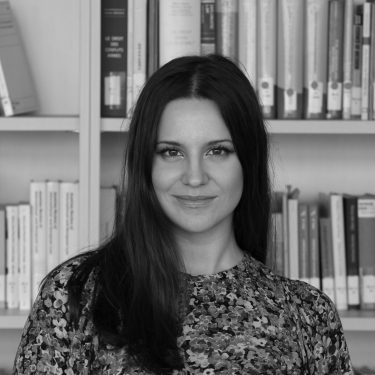Welcome to the latest interview of the Völkerrechtsblog’s symposium ‘The Person behind the Academic’! With us we have Judge Hilary Charlesworth, and through the following questions, we will try to get a glimpse of her interests, sources of inspiration and habits.
Welcome Judge Charlesworth and thank you very much for accepting our invitation!
May I first ask, what it was that brought you to academia and what made you stay?
After my undergraduate studies in law, I intended to become a barrister, or advocate. My plans changed once I completed my graduate degree in the United States. This was my introduction to theories about law, which seemed very exciting after my rather traditional legal education. I encountered many brilliant teachers there and I was inspired to follow in their footsteps and become an academic. I have found academia intensely rewarding as a career, particularly through the marvellous students and colleagues who I have worked with over the years. I have also valued the freedom to pursue research questions that interest me.
What would you say is the most difficult part of the academic life?
Academics must balance many types of activity—teaching, research, administration and public engagement—without much support. So, you have to become an expert juggler and there is always a fear that you will drop the balls in a spectacular fashion.
If you were not an academic, what would you be?
I have now left the academic world to work as a judge. This was a quite unexpected development, and I am still getting accustomed to the world of the judiciary, with its non-malleable deadlines and its requirement to reach a decision on a given dispute. I feel very fortunate to have this chance to contemplate legal ideas in a concrete way.
Which are three texts that you would wish all academics working on international law would read?
John Braithwaite and Peter Drahos, Global Business Regulation (2000)
Sally Engle Merry, Human Rights and Gender Justice (2005)
Karen Knop, Diversity and Self-Determination in International Law (2002)
Would you say that your upbringing has had an impact on your research interests or your perception of justice?
My parents were both interested in questions of justice—my father as a philosopher and my mother as a social worker. They have deeply influenced the type of questions that intrigue me, although I think that they both considered my research as rather eccentric.
What is your favourite place to read and write? What is always near you when you read and write?
I love working while looking out at the ocean on the south coast of New South Wales, Australia. In some seasons there, you can see whales diving and breaching not too far out to sea. I usually have a teapot close at hand while working, with a favourite tea brewing.
What is an energy and inspiration booster, at times when you have none?
I find walking is the perfect boost for such times. There is something about the regular physical movement that energises the mind and helps you think through intellectual puzzles.
Have you ever drawn influence from any form of art in your work? Is there anything artistic about teaching or writing academic texts?
In the past few years, I’ve become interested in the way that art interacts with international law. There are many aspects to this question, including the regulation of art by international law and the way that art can influence the discipline. A favourite artist of mine is Lubaina Himid. Among other brilliant work, I love Himid’s “Freedom and Change” (1984) which takes Pablo Picasso’s small painting “Two Women Running on the Beach (The Race)” (1922) as its reference point. While Picasso’s panel depicts the women as solid, white, athletic figures in neutral, almost classical, garb, Himid’s version is much larger, painted on a pink bed sheet and features two black women dressed in colourful clothing taking their dogs for a joyful walk. There are two bald white men’s heads made of plywood positioned to the left of the sheet. They are at ground level, so the men’s bodies appear buried in the sand. I think there are parallels here with feminist projects in international law. Just as Himid reworks Picasso’s image, feminist scholars often study classic international law doctrines and concepts, pointing to their limitations and re-imagining them in a broader and more inclusive manner.
Which of your publications is your favourite one? And which of them is your least favourite?
My attitude to my own publications is shaped by the memories I have of the circumstances in which they were written—surrounding conversations, the weather, what my family was up to at the time, the difficulty of finding words to express ideas. For example, whenever I think of “Feminist Approaches to International Law” (1991), I recall being pregnant, then working alongside a sleeping baby, long phone calls and faxes with my wonderful co-authors Christine Chinkin and Shelley Wright, and the stern but helpful critique of Tom Franck, editor of the American Journal of International Law and Anna Ascher’s meticulous copy editing.
Which advice would you give to early career scholars reading this interview?
Be patient! Resist traditional deadlines for what is considered ‘career progression’. Take your time to find the right path for you and don’t be hurried into a specialisation early. Collect as many experiences as you can, even if they don’t seem to be obvious steps in one direction. A good path to take often emerges slowly and haphazardly.
If you could, which unspoken rule of academia would you instantly erase?
The idea that academic productivity is measured in publications and grants.
Have you experienced or witnessed discrimination in academic circles? How have you reacted to these instances?
Many forms of discrimination shape academic life, in my observation. These include discrimination based on race, gender, sexuality and physical ability. Few academic institutions have systems that respond adequately to discriminatory practices. I don’t have an impressive reaction to share, alas. Early in my academic career, I joined some women colleagues in a complaint that only male lecturers had been invited to apply for promotion in a particular year. After a number of letters and meetings, the university authorities simply batted away our concerns. The whole process was dispiriting and exhausting. I wish now that I had been more persistent or at least chronicled the experience in some way.
Would you like to share with us a ‘sacrifice’ that you have made for your work? Do you regret it?
I have gained so much from my academic work, and I don’t feel that I have made sacrifices for it along the way. I should say that I’ve benefitted from having an encouraging and generous partner and family who have supported me in many ways. Being based in the Hague now, I keenly miss the day-to-day contact with my children and grandchildren.
Ideally, whom would you want to find waiting for a meeting with you outside your office next Monday?
One (or some) of my former PhD students. I’ve supervised many fantastic students over the years and have learned a great deal from them. It’s always a pleasure to see what paths they go on to take.
Thank you very much, Judge Charlesworth, for participating in our symposium and for having taken the time to respond to our questions!


